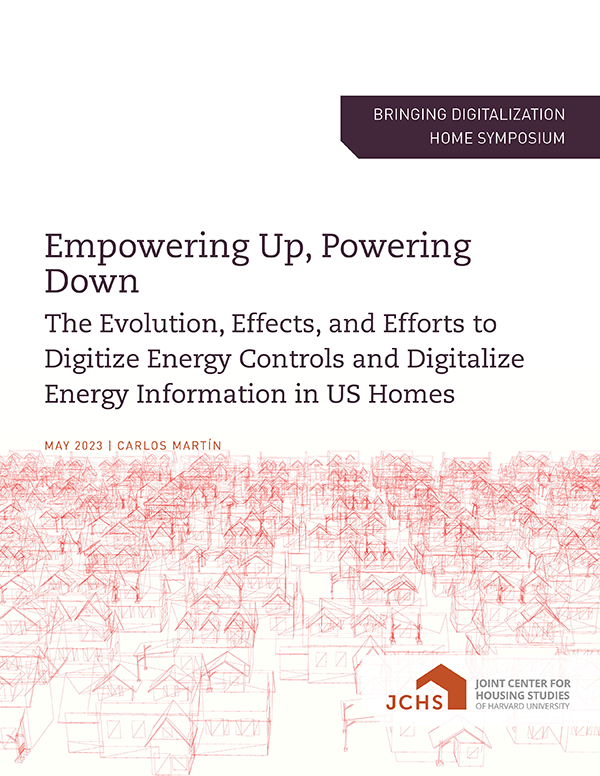Empowering Up, Powering Down: The Evolution, Effects, and Efforts to Digitize Energy Controls and Digitalize Energy Information in US Homes
The digitization of residential energy—aided by the digitalization of information about energy usage—has spurred a revolution in energy-efficiency investments and helped spawn the “smart home” movement. Electrifying both homes and home monitoring (usually simultaneously) has provided opportunities to reduce individual households’ energy consumption, which stood at almost 23 percent of the total national energy use at last count, and reduce the nation’s overall residential energy demand. This paper covers the wide terrain of residential energy digitalization by reviewing the current state of residential energy digitalization and the diffusion of its “smart” meters, controls, and network connections and information exchanges, and their evolution within the broader policy contexts of residential energy consumption (or, rather, the slow transition to residential decarbonization over the last half-century). More significantly, the paper addresses housing affordability and quality (and the technological obduracy of non-electrified residential systems) that pose industrial parameters to comprehensive digitalization. Further, the author introduces additional considerations that temper the energy digitalization’s momentum: equity and privacy. In reviewing the factors that alternately encourage and constrain a uniform transition to comprehensive energy digitalization across all US homes, the paper considers alternative paths for reaching societal goals that include energy digitalization, but not exclusively. Ultimately, the paper poses the questions: must an “energy smart” home be digitalized, and, if so, who benefits from its digitalization?
This paper was presented as part of “Panel 4: How Is Digitalization Transforming How Housing Is Used?” at the symposium Bringing Digitalization Home: How Can Technology Address Housing Challenges?, hosted by the Harvard Joint Center for Housing Studies in March 2022.

